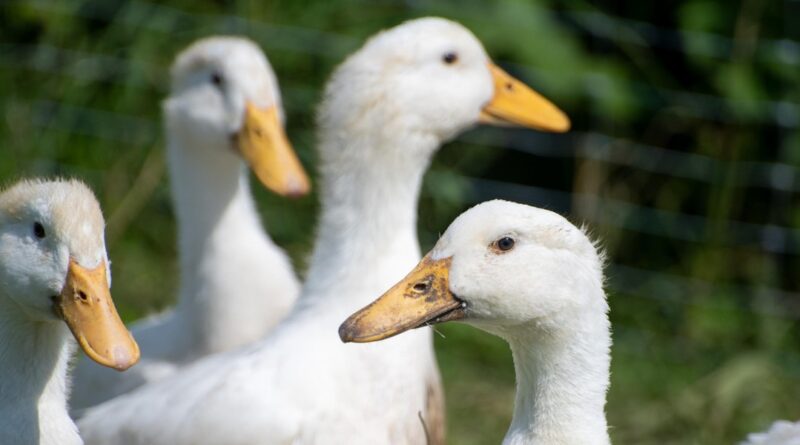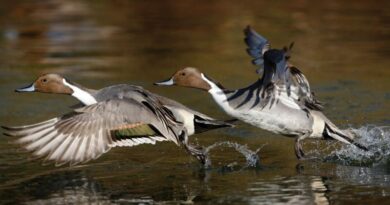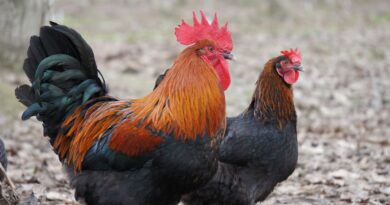How Long Do Ducks Live? Understanding Duck Lifespan and Care Tips
Ducks are fascinating creatures that captivate people with their charming quacks, waddling gaits, and lively behavior. Whether you are a duck enthusiast, a backyard poultry farmer, or simply curious about these waterfowls, understanding their lifespan and how to care for them is essential. This comprehensive guide delves into the life expectancy of ducks, the factors influencing their lifespan, and practical care tips to ensure their health and longevity.
Natural Lifespan of Ducks in the Wild
In their natural habitat, ducks face numerous challenges that can significantly affect their lifespan. Wild ducks typically live between 5 to 10 years, depending on the species, environmental conditions, and predation risks. For instance, mallards, one of the most common wild duck species, often live up to 5 years in the wild, although some individuals can exceed this range under favorable conditions.
Factors such as access to food, water quality, and shelter play a critical role in their survival. Additionally, natural predators like foxes, hawks, and larger aquatic animals contribute to the mortality rate of wild ducks. Despite these challenges, some ducks exhibit remarkable adaptability, thriving in diverse ecosystems ranging from wetlands to urban parks.
Lifespan of Domesticated Ducks
Domesticated ducks generally enjoy a longer lifespan compared to their wild counterparts. With proper care and protection, domesticated ducks can live 10 to 15 years, with some individuals even reaching 20 years. Breeds like Pekin ducks, Khaki Campbells, and Indian Runners are popular among backyard farmers and hobbyists, and their lifespans are greatly influenced by the level of care provided.
One of the primary reasons for their extended lifespan is the absence of predators and a controlled environment that minimizes health risks. However, this doesn’t mean they are immune to health problems. Domesticated ducks require a balanced diet, regular health checks, and a clean living space to thrive.
Factors Affecting Duck Lifespan
Several factors influence how long ducks live, whether in the wild or captivity:
Genetics and Breed
Different duck breeds have varying lifespans. While some breeds are hardy and long-lived, others may be more susceptible to diseases and environmental stress.
Predation
Predators pose a significant threat to wild ducks. For domesticated ducks, a secure living area can help mitigate this risk.
Diet and Nutrition
Proper nutrition is crucial for a duck’s overall health. A diet rich in essential nutrients supports growth, immune function, and longevity.
Living Conditions
Ducks require a clean, spacious environment to avoid stress and the spread of diseases. Poor living conditions can significantly shorten their lifespan.
Disease and Healthcare
Ducks are prone to certain diseases like avian influenza, botulism, and bumblefoot. Early detection and treatment are vital for their survival.
Stress Levels
High stress, often caused by overcrowding, frequent handling, or environmental changes, can weaken a duck’s immune system and reduce its lifespan.
How to Prolong a Duck’s Life: Essential Care Tips
Proper care is the cornerstone of ensuring your ducks live a long and healthy life. Here are some practical tips to enhance their quality of life:
Provide a Nutritious Diet
Ducks thrive on a balanced diet consisting of commercial duck feed, grains, vegetables, and occasional treats like mealworms or fruits. Ensure they have access to clean, fresh water for drinking and feeding.
Create a Safe and Comfortable Habitat
Ducks need a secure coop or shelter to protect them from predators and harsh weather conditions. Ensure the enclosure is spacious, ventilated, and regularly cleaned to prevent the buildup of harmful bacteria.
Ensure Regular Veterinary Care
Periodic health check-ups and vaccinations can prevent common illnesses. Familiarize yourself with signs of duck diseases and seek professional help if you notice any abnormalities.
Encourage Natural Behaviors
Allow your ducks to engage in activities like foraging, swimming, and socializing. These activities not only promote physical health but also reduce stress.
Protect Against Predators
Install secure fencing and predator-proof your duck’s living area. Consider using motion-activated lights or alarms to deter nocturnal predators.
Provide Clean Water for Swimming
Ducks are waterfowl and require access to a pond, kiddie pool, or similar setup for swimming.
Clean water helps maintain their plumage and prevents skin infections.
Monitor Environmental Conditions
Avoid exposing your ducks to extreme temperatures. Provide shade during hot weather and adequate insulation during the colder months.
Common Health Issues in Ducks
Understanding the health challenges that ducks face can help you take preventive measures. Below are some common health issues and their remedies:
Respiratory Infections
Symptoms: Sneezing, nasal discharge, and difficulty breathing.
Treatment: Ensure good ventilation and seek veterinary advice for antibiotics if necessary.
Bumblefoot
Symptoms: Swollen feet with sores or abscesses.
Treatment: Maintain clean bedding and treat affected areas with antiseptic solutions.
Parasites
Symptoms: Weight loss, lethargy, and visible parasites in feathers.
Treatment: Use veterinarian-recommended antiparasitic treatments.
Egg Binding (in females)
Symptoms: Straining and lethargy.
Treatment: Increase calcium intake and consult a vet for severe cases.
Avian Influenza
Symptoms: Lethargy, loss of appetite, and sudden death.
Prevention: Maintain strict biosecurity measures and avoid contact with wild birds.
Fun Facts About Ducks
- Ducks are not only lovable but also fascinating animals. Here are some intriguing facts:
- Ducks have waterproof feathers thanks to a special gland near their tails that produces oil.
- They can sleep with one eye open, keeping half their brain alert for potential threats.
- Some duck species migrate thousands of miles annually to find suitable breeding and feeding grounds.
- Ducks are highly social creatures and thrive in groups, often forming lifelong bonds with their mates.
The Role of Ducks in Ecosystems and Human Lives
Ducks are more than just charming creatures; they play vital roles in ecosystems and contribute to human lives in various ways. Their presence impacts biodiversity, agriculture, and even cultural traditions, making them valuable to both nature and society.
Ecosystem Balance
Ducks are essential in maintaining the balance of aquatic ecosystems. As omnivores, they feed on algae, small insects, and aquatic plants, preventing overgrowth and supporting biodiversity. Their droppings also enrich water bodies with nutrients, benefiting aquatic plant growth.
Pest Control in Agriculture
In agricultural settings, ducks are natural pest controllers. Farmers often use them to reduce the population of harmful insects like snails and slugs in rice paddies. This symbiotic relationship benefits both the ducks, who get a food source, and the crops, which thrive without the need for chemical pesticides.
Cultural Significance
Ducks hold a significant place in various cultures and traditions worldwide. From being symbols of fidelity and love in Chinese culture to their prominent roles in folklore and art, ducks have been celebrated for centuries.
Economic Importance
Ducks are a source of livelihood for many people. Duck farming for eggs, meat, and feathers contributes to the economy. Ethical farming practices ensure both the well-being of ducks and the sustainability of their products.
Recreation and Education
Ducks are popular in recreational areas like parks and nature reserves, where people can observe their behavior and learn about wildlife. Programs that focus on conservation and education help raise awareness about the importance of preserving duck habitats
Conclusion
The lifespan of a duck depends on a multitude of factors, including its species, environment, and level of care. While wild ducks face numerous survival challenges, domesticated ducks can live long, healthy lives when given proper attention and care. By understanding their needs and taking proactive measures, you can ensure that your feathered companions not only survive but thrive.
Whether you’re raising ducks as pets or for farming purposes, a commitment to their well-being will reward you with their lively presence and delightful antics for years to come




